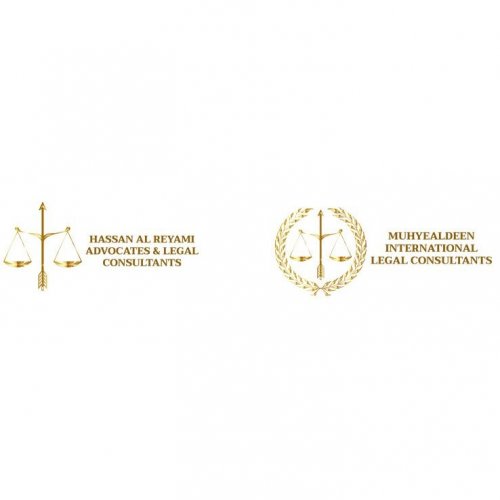Best Employer Lawyers in Abu Dhabi
Share your needs with us, get contacted by law firms.
Free. Takes 2 min.
List of the best lawyers in Abu Dhabi, United Arab Emirates

The Black Robe For Legal Consultancy & Debit Collection
1 hour Free ConsultationUnited Arab Emirates Employer Legal Articles
Browse our 2 legal articles about Employer in United Arab Emirates written by expert lawyers.
- Workplace Accident Procedures for Dubai Businesses
- Table of ContentsIntroduction: A Guide for EmployersImmediate Actions After an InjuryProvide Medical AssistanceSecure the SceneInternal NotificationOfficial Reporting Requirements in DubaiMinistry of Human Resources and Emiratisation (MoHRE)Dubai PoliceFree Zone SpecificsUnderstanding Your Legal Compensation LiabilityTemporary DisabilityPermanent DisabilityFatality, Diya, and Civil ClaimsCan a Manager Be Held Personally Liable?Assessing Your Insurance CoverageWorkmen’s Compensation InsuranceEmployer’s... Read more →
- Legal Requirements for Hiring Employees in the UAE
- Table of ContentsIntroductionNavigating the New UAE Labour LawCore Principles of the New Labour LawEquality and Anti-DiscriminationProtections Against Workplace HarassmentThe Modern Employment ContractMandatory Fixed-Term AgreementsNew Flexible Work ModelsEmployee Rights and EntitlementsWorking Hours and OvertimeLeave Policies (Annual, Sick, Maternity, and Others)End-of-Service Gratuity CalculationThe Hiring Process: A Step-by-Step GuidePhase 1: Recruitment and ContractingCompliant... Read more →
About Employer Law in Abu Dhabi, United Arab Emirates:
Employer Law in Abu Dhabi, as with the rest of the United Arab Emirates (UAE), is governed by the UAE Federal Law No. 8 of 1980, otherwise known as the UAE Labour Law. This law, along with certain Ministerial Decisions, regulates the relationship between employers and employees, outlining rules on working hours, official holidays, annual and sick leave, end of service benefits, and health and safety obligations, among others.
Why You May Need a Lawyer:
Employers may find themselves needing legal assistance when hiring employees, drafting or revising employment contracts, dealing with employee disputes or misconduct, terminating an employment relationship, complying with local labor laws, implementing redundancy programs, or setting up procedures compliant with health and safety regulations. Having a lawyer assist you ensures your business practices are lawful, mitigates the risk of legal disputes, and can provide important counsel when issues arise.
Local Laws Overview:
Key aspects of employer law in Abu Dhabi align with UAE's Federal Labour Law, which include provisions relating to the terms of employment contracts, wage protection systems, insurance schemes for workplace injuries, end of service gratuity, arbitrary dismissal, redundancy, and the ban on discrimination and harassment. Employers are required to provide their employees with certain benefits, such as annual leave, sick leave, maternity leave, and medical insurance. Any violation of these laws may lead to heavy penalties imposed by the UAE Ministry of Human Resources and Emiratisation.
Frequently Asked Questions:
1. What is an Unlimited Contract in UAE?
Unlimited contracts do not have a specified tenure and can be terminated by either party with a notice period, usually of 30 days.
2. What is a Limited Contract in UAE?
Limited contracts have a fixed tenure, usually of 2-3 years, and cannot be terminated before the end of the term without penalties unless on grounds specified by the law.
3. What are the working hours under UAE Labour Law?
The standard working hours are 8 hours per day or 48 hours per week. During Ramadan, the working hours are reduced by 2 hours.
4. What is the end of service gratuity?
This is a severance pay that an employer is required to provide to an employee who has completed one or more years of continuous service. It's calculated based on the employee's last drawn salary.
5. Can an employer terminate an employee without notice?
An employer can terminate an employee without notice only on certain grounds as stated in the Federal Labor Law, such as the adoption of a false identity, commission of an error resulting in significant material loss for the employer, and others
.Additional Resources:
Relevant resources include the UAE Ministry of Human Resources and Emiratisation and the Abu Dhabi Government portal, where you can get more information about UAE's labor laws and employer obligations. In addition, consulting with a local law firm specializing in labor and employment law might be beneficial.
Next Steps:
If you need legal assistance, you should consider engaging a legal professional with expertise in UAE's employer law. Make sure you choose a lawyer or a law firm with a clear understanding of the local rules and regulations, years of experience in the field, and a good reputation in handling employer cases in Abu Dhabi.
Lawzana helps you find the best lawyers and law firms in Abu Dhabi through a curated and pre-screened list of qualified legal professionals. Our platform offers rankings and detailed profiles of attorneys and law firms, allowing you to compare based on practice areas, including Employer, experience, and client feedback.
Each profile includes a description of the firm's areas of practice, client reviews, team members and partners, year of establishment, spoken languages, office locations, contact information, social media presence, and any published articles or resources. Most firms on our platform speak English and are experienced in both local and international legal matters.
Get a quote from top-rated law firms in Abu Dhabi, United Arab Emirates — quickly, securely, and without unnecessary hassle.
Disclaimer:
The information provided on this page is for general informational purposes only and does not constitute legal advice. While we strive to ensure the accuracy and relevance of the content, legal information may change over time, and interpretations of the law can vary. You should always consult with a qualified legal professional for advice specific to your situation.
We disclaim all liability for actions taken or not taken based on the content of this page. If you believe any information is incorrect or outdated, please contact us, and we will review and update it where appropriate.
















